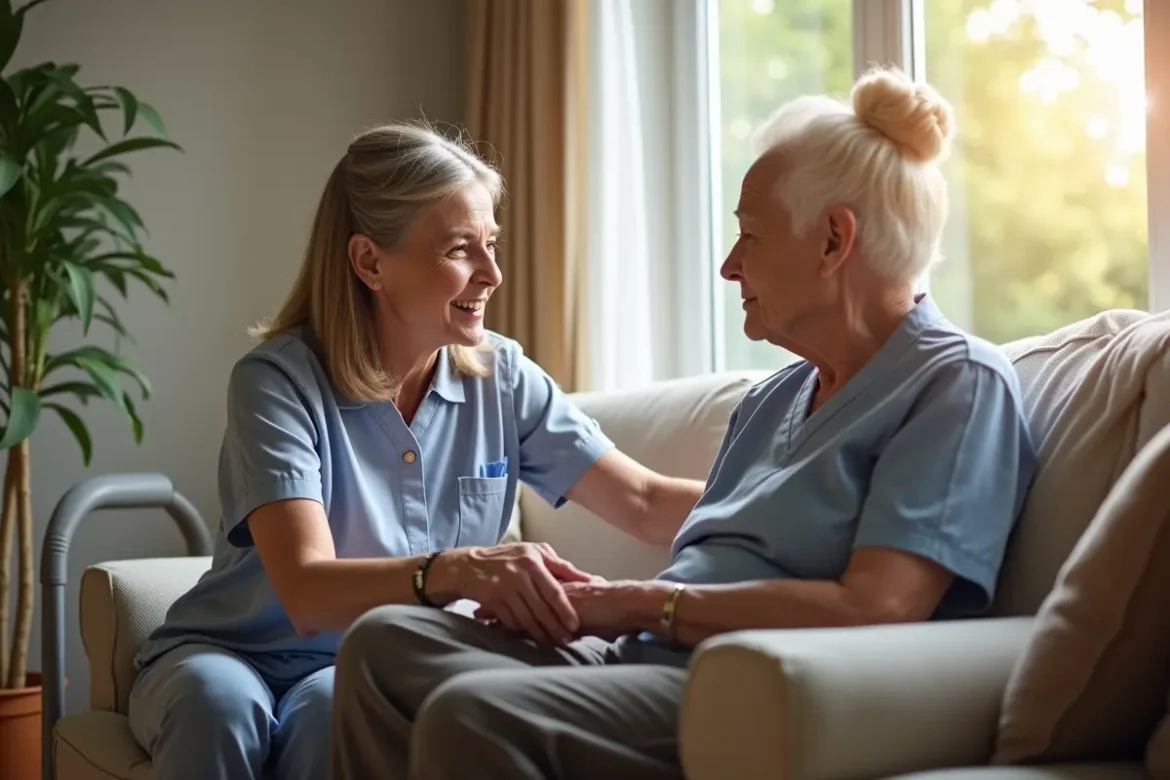How Personal Care Assistants Help Keep Seniors Safe at Home
Does your family understand how easily an older adult living alone can go downhill quickly? A wet bathroom floor is a broken hip. Forgetting to take medication equals a hospital visit. Missing a few meals turns into a health crisis. This is not an exaggeration, this is what happens to people when they live alone without help – because that’s what they intend to do.
However, personal care assistants aren’t there just to help with daily endeavors, but rather, become a buffer of safety against things that could otherwise be avoided. And quite frankly, that’s the difference between someone successfully living at home or in a nursing home much too soon.
Personal Care Assistants Minimize In-Home Incidents
Few people think about the amount of accidents that happens in the morning. Seniors wake up stiff, with perhaps some dizziness from their blood pressure medication and rush to the bathroom. This is when they fall the most.
A personal care assistant who is there to help them from the beginning avoids this accidental incident before it happens. They help someone get out of bed, help with morning hygiene, and ensure nothing is slippery in the bathroom. For families who need personal care & assistance in Philadelphia, having someone there during this vulnerable period prevents falls before they happen and the falls that will change everything.
But it’s also about recognizing when something is wrong – someone who usually just gets up has trouble after a restless night or extra help in the bathroom. This may indicate they’re getting an infection. This may indicate their medication needs to be adjusted and instead of everyone finding out about this issue in retrospect, the assistant notes it and reports it ahead of time.
Medication Management
Most older adults take medications, and an overlooked dose can have someone ending up in the ER. Whether it’s a wrong medication selected, forgetting to take one altogether or double dosing, personal assistants are there with them through thick and thin during these vulnerable times.
They organize medications, tell them it’s time to take them and confirm they’ve been taken by watching it happen. They also notice side effects as well, from someone progressively getting confused, or side effects that aren’t appreciated when someone is alone, nausea, difficulty standing up – all reactions to medication that need medical attention and personal care assistants can catch this before crisis mode sets in.
Conversely, many seniors won’t admit if they have trouble staying on top of their pills. They’re embarrassed. They don’t want to admit they need help or are incapable of keeping it all together. Having someone come in saves them from having to remember and absolves them from needing help.
Meal Preparation
This one goes unnoticed; when an older adult lives alone, they’re probably not eating enough – and families would never know it. It’s too much of a hassle to stand over a stove. It’s too uncomfortable to make a full meal. Sometimes it’s disinterest; sometimes they forget.
Personal care assistants prepare meals but also ensure those meals are eaten. They take dietary restrictions into account, make what the senior typically likes to eat and turns mealtime from an arduous task into a sociable event to share with someone else who may like their company. The difference between being well-nourished and well-fed is palpable once someone is able to get their vitamins again.
Furthermore, those who attempt to make meals leave burners on, pots boiling over or fires forming. A personal care assistant helps them avert these fire dangers altogether.
Mobility Assistance
Falls are the number one reason why seniors lose their independence faster than anything else. One bad fall can spiral an individual downward and there’s no coming back from it. Personal care assistants help individuals walk – get into/out of the shower, off the toilet – safe operating procedures that become dangerous as one ages.
In addition, they assess the home environment, throw rugs have to go, clutter needs to be shifted, hallway lights need to remain on, all safety concerns that family members wouldn’t notice because they’re not there day in and day out for long periods of time and don’t see how their loved one moves through space; personal care assistants do.
But seniors don’t want to admit they need walkers or assistance for getting around – they believe they can do it all – even if they can’t anymore. The personal care assistant provides physical support whether or not the senior approves, and if they fall, at least they had someone who would’ve caught them before they fell in the first place instead of picking them up afterwards.
Hygiene Help
This is uncomfortable to discuss but very necessary, when seniors cannot bathe successfully on their own, sometimes they forego it altogether or attempt to get into the bathtub by themselves and fall in the process. Personal care assistants know how to facilitate bathing, personal hygiene without being intrusive yet giving dignity while providing safety and cleanliness.
This helps prevent urinary tract infections, skin breakdowns or any hygiene-related ailments that can flare up quickly; this helps relieve family members from needing to tend to such intimate matters that could be awkward for all parties involved.
Companionship
Depression inhibits cognitive decline, and especially for seniors, even more so so when someone goes days without speaking to anyone and their cognitive functioning declines at rapid rates, that’s detrimental – and once again, avoidable.
A personal care assistant provides constant social stimulation and cognitive functioning just by being present, and they recognize dementia or confusion faster than family members can who only see their loved ones sporadically for visits. Repeated questions, lost trains of thoughts or getting lost in familiar areas, all noted by an assistant who reports back to family members for diagnostic needs down the road.
Final Thoughts
People wait too long in procuring assistance until after something happens because they don’t want to overstep boundaries and make mom and dad feel incapable. But personal care assistance averts falls, medication disasters, malnutrition and health crises that forever strip independence away in a heartbeat.
Having someone else there provides multiple layers of prevention so small inconveniences don’t grow into overwhelming emergencies; it’s not about taking over someone’s life – it’s about filling in the gaps before risks take charge.
Those older adults who thrive at home indefinitely do so because they open their lives up to assistance before they absolutely need it, not after something bad occurs.




